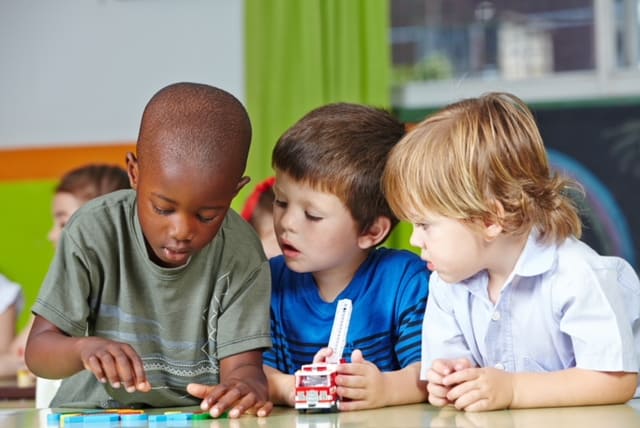While your child may be focused on presents and candy this time of year, helping her to understand the importance of compassion and generosity, not just during the holidays, but year-round, is crucial to the development of her character. Our seven tips may help you to get started.
- Send compassionate thoughts. Do you know someone who is struggling with difficulty? If you are sending your own kind thoughts to them, explain the situation to your child and ask him to think kind thoughts as well. Families who pray may even incorporate prayer into this practice.
- Invite everyone to play “warm and fuzzy”. Ask your family to sit in a circle. One by one, each person will take a turn, and during each person’s turn, everyone else in the circle will tell them three things that they love about them. It’s a simple game that makes everyone feel good throughout.
- Share stories of kindness in the community. When you read about a good Samaritan or an effort to help local families in need, tell your kid about what you’re reading. They hear so many negative news stories secondhand, so telling them about a few good stories is critical.
- Children can help to sort food at a soup kitchen or food bank, or cuddle animals at a shelter, and participating with them in this kind of volunteer activity can become a continuous practice for your family.
- Write letters. Soldiers abroad, elderly residents of a nursing home, and patients in the hospital love to receive letters written by children, even if you do most of the writing and they draw a few pictures.
- Keep an eye on television and movies. Even wholesome, mainstream children’s entertainment can disappoint. One blockbuster kids’ movie we know of features a child telling his father that he “hates” him. Figure out what kind of language and what amount of violence you are OK with, and monitor what your child sees.
- Acknowledge the consequences of behavior. If your child hits another kid, remember to point out that hitting hurts, and that the other child may be hurting and feel sad. If your child uses harsh language, make sure he knows the impact of that language on others.
When do you see your child exhibiting kindness and generosity? Are there practices that you’ve put into place that motivate or reward that kindness? Let us know in the comments section.

